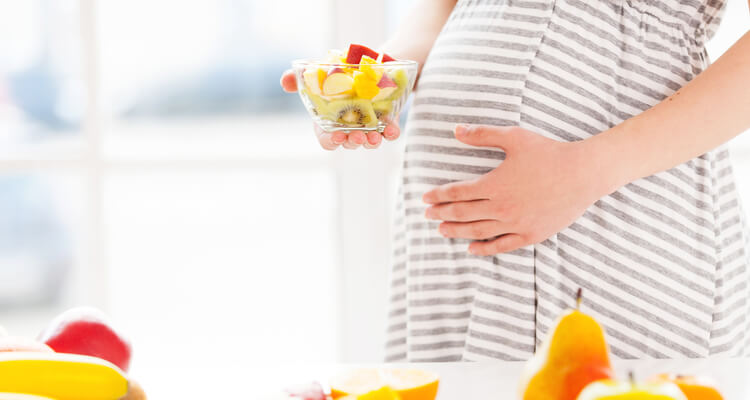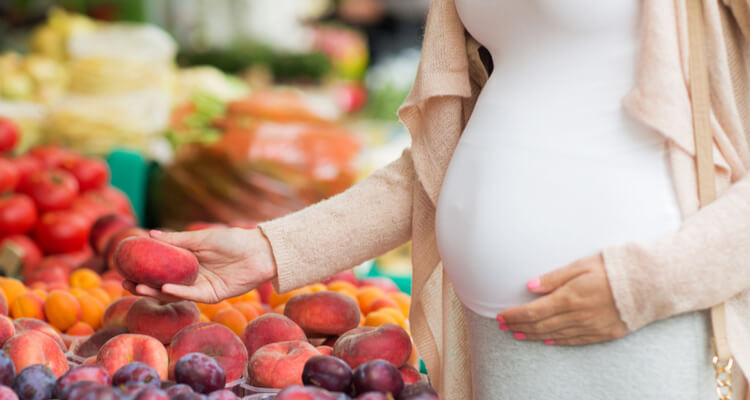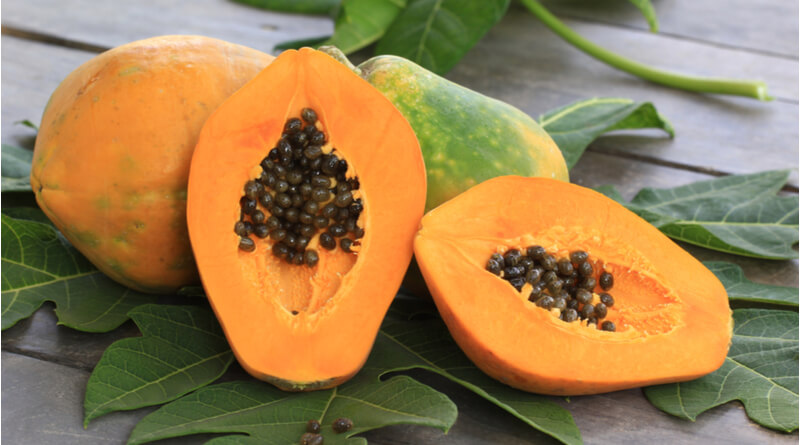There is no such thing as a non-stressful pregnancy; there are just way too many things to consider and be mindful of. Your diet is probably one of the biggest and most important factors that you have to monitor while pregnant. It is responsible for providing both the expecting mother and the unborn child with the nutrients needed for the fetus to properly develop. An expecting mother is eating for two after all.
A healthy diet needs to be nutritionally diverse and balanced, which means eating a wide range of different foods. This can be difficult for some pregnant women because women’s tastes tend to fluctuate and change while pregnant. That’s why fruit is such a great dietary option while pregnant. It tends to be nutrient dense, contains lots of necessary antioxidants, and normally tastes delicious. Future mothers can get many of the nutrients they need for their child without having to worry about throwing up due to the taste.
But not all fruits are made equally; some just are not good for pregnant women to consume because of their unique properties. Papaya is one of those fruits; while it tastes good and is normally something you want to include in your diet due to its health benefits, it can be dangerous for pregnant moms to consume.

To be clear, papaya is not completely unsafe to eat during a pregnancy. It really depends on how and when you eat it. Basically, ripe papaya is safe for pregnant women to eat while unripe papaya can be legitimately dangerous.
Why Expecting Mothers May Want to Eat Papaya in the First Place
The biggest two reasons to make papayas part of your pregnancy diet is because it tastes great and it has a whole lot of health benefits that can be useful during pregnancy. Papaya contains iron, antioxidants, beta-carotene, potassium, folic acid, dietary fiber and calories for some much-needed energy.
Why Unripe Papayas are Dangerous for Expecting Mothers
The reason eating unripe papaya is dangerous during a woman’s pregnancy is because it contains latex which is a mixture of endopeptidases, papain, and chymopapain.
The latex contained in an unripe papaya fruit can trigger acute uterine contractions which can cause an early labor or miscarriage.
Your body may mistake the papain contained in the papaya for prostaglandins which are a compound that induces labor. It also has the potential to weaken vital membranes that support the fetus in utero. And papain prevents the productions of the hormone known as progesterone which is necessary for any healthy pregnancy.
On top of everything else, it is a rather common allergen that can trigger reactions that are dangerous for pregnant women like raising the body temperature.

Do Women Need to Avoid Papaya During the Entire Pregnancy?
The most crucial time to avoid eating papaya during a pregnancy is the first and third trimester. Those two trimesters are the most important for a fetus’ development.
During the first trimester, the unripe papaya may increase the chance of a miscarriage occurring. The latex contained in the papaya may cause acute and unnatural contractions to occur.
During the third trimester, the latex can cause hemorrhaging to occur in the wound. It can still cause acute contractions which run the risk of causing a miscarriage. As a matter of fact, papaya has historically been used as a means to induce labor during late term pregnancies.
You should especially avoid eating papaya during pregnancy if:
- You already possess a latex allergy
- You are conceiving after going through any type of infertility treatment
- You have previously had an abortion , miscarriage, premature delivery or are seriously concerned such things might occur.

When it comes to the matter of eating papaya during a pregnancy, the best course of action is to avoid the fruit altogether. There are other fruits and foods which have similar health benefits to papayas without having to risk the negative consequences associated with it. If you do want to eat papaya, make sure it is absolutely ripe. In any case, discuss with your health practitioner to understand if there are any risks associated with consuming the fruit during your pregnancy.
A ripe papaya has skin that is transitioning from green to yellow. You can tell a papaya is ripe by pressing your thumb into its flesh; your thumb should leave an impression in the fruit’s skin. If the papaya is green then it is unripe. You can hasten the papaya’s ripening by placing it in a paper bag with apples or bananas. If you are unsure whether a papaya is ripe or unripe, it is the best to avid eating the fruit itself, especially if you are in your first trimester.








